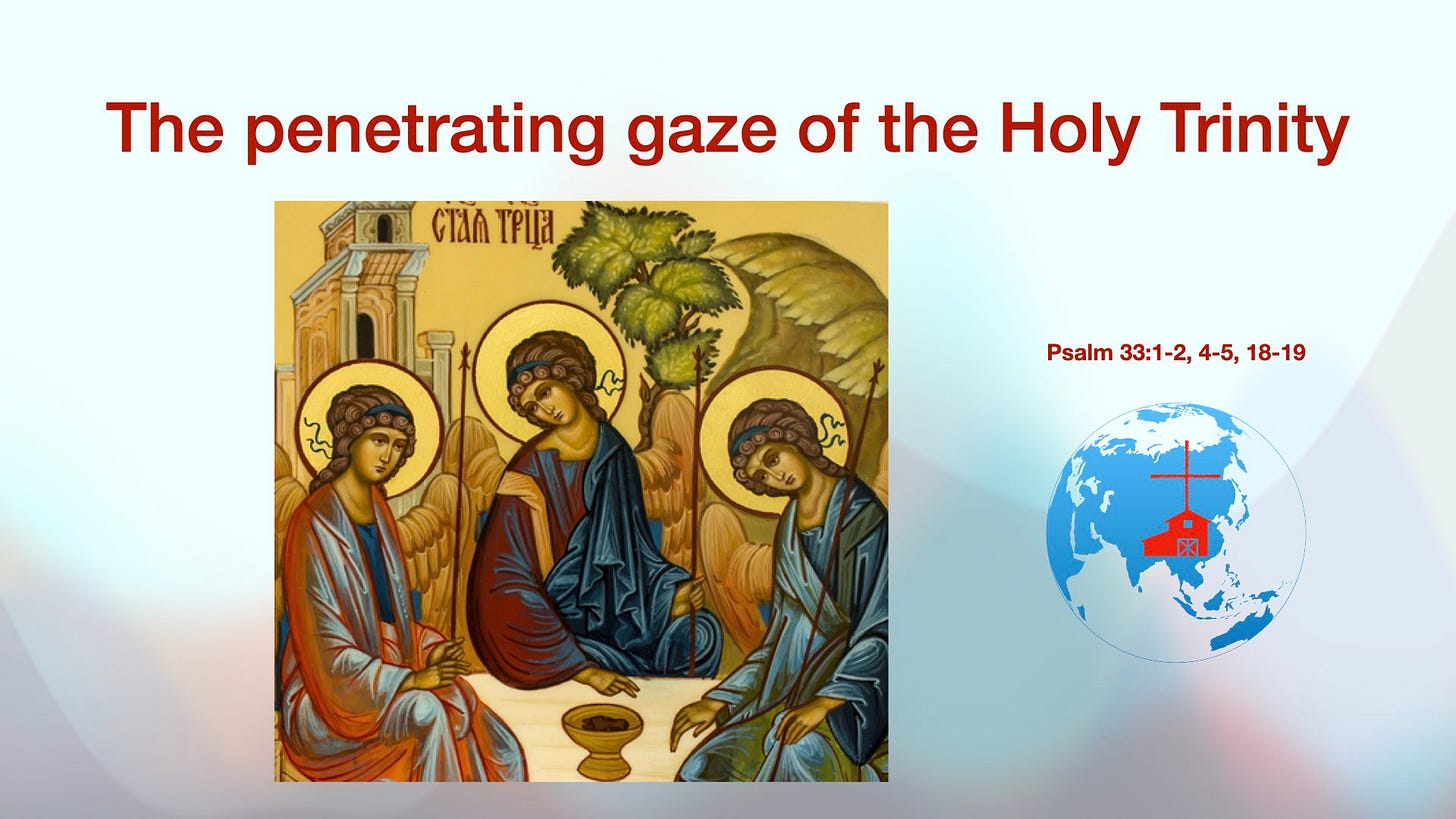Psalm 33:1-2, 4-5, 18-19
At the beginning of the book of Genesis, we are introduced to the mystery of the Holy Trinity: God, the Spirit of God, and the Word of God spoken by God (see Gen 1:1-6). We can discover the same mystery in Psalm 33. There is the Lord, the Word of the Lord, and the breath of the Lord’s mouth that indicates the Holy Spirit (see Ps 33:2, 6). Thus, the universe was created by the Father through the Father’s Word and His Spirit. The Fathers of the Church describe the Word of God and the Spirit of God as the hands of the Father through which he created the world, embraces and sustains it in existence.
The psalmist invites us to praise the Lord. In our Creed, we proclaim our faith in the Father, creator of heaven and earth, in one Lord, Jesus Christ, consubstantial with the Father, and in the Holy Spirit, the Lord and the giver of life. Thus, in the Church, we worship the Holy Trinity, the Father, the Son, and the Holy Spirit. We have the vision of such worship in the Book of Revelation. John is being taken in the Spirit to heaven and he sees someone seating on the throne whose appearance evades description, seven spirits of God burning before the throne symbolising the Holy Spirit in his fulness, and the Lamb of God standing before the throne (see Rev 4:2–5; 5:6). The one seating on the throne and the Lamb receive worship from all the creatures around the throne (see Rev 4:9-11; 5:13-14).
The psalmist says that “the eyes of the Lord are upon those who fear him, on those who hope in his mercy” (Ps 33:18). The phrase “the eyes of the Lord” appears in the second book of Chronicles in the speech of Hanani the seer to Asa king of Judah. Hanani says: “For the eyes of the LORD run to and fro throughout the whole earth, to give strong support to those whose heart is blameless toward him” (2 Chron. 16:9). And the book of Proverbs teaches that “The eyes of the LORD are in every place, keeping watch on the evil and the good” (Proverbs. 15:3). Thus “the eyes of the Lord” indicate his infinite knowledge. Nothing and none can escape the penetrating gaze of those eyes (Heb. 4:13).
But the psalmist and Hanani stress one more aspect of the metaphor “the eyes of the Lord” namely his compassion towards those who fear him, whose heart is blameless toward him. In the book of Exodus, God tells Moses that He saw “the affliction of [His] people” in Egypt” (Ex 3:7). We know what happened afterwards. In the Gospel of Luke when Jesus saw the widow from Nain on the way to bury her only son, he had compassion on her and brought her son back to life (Luke 7:11-17). The psalmist speaks about deliverance from death and famine which brings to our minds all those stories about famine in the Bible where God offered a remedy to the crisis (see Gen 41; 1 Kings 7:7-16).
Thus, we worship the Holy Trinity that created the universe and we put our trust in the Father, the Son, and the Holy Spirit to deliver us from the power of death and bring us to life everlasting. “Lord, let your mercy be on us, as we place our trust in you” (Ps 33:22).




